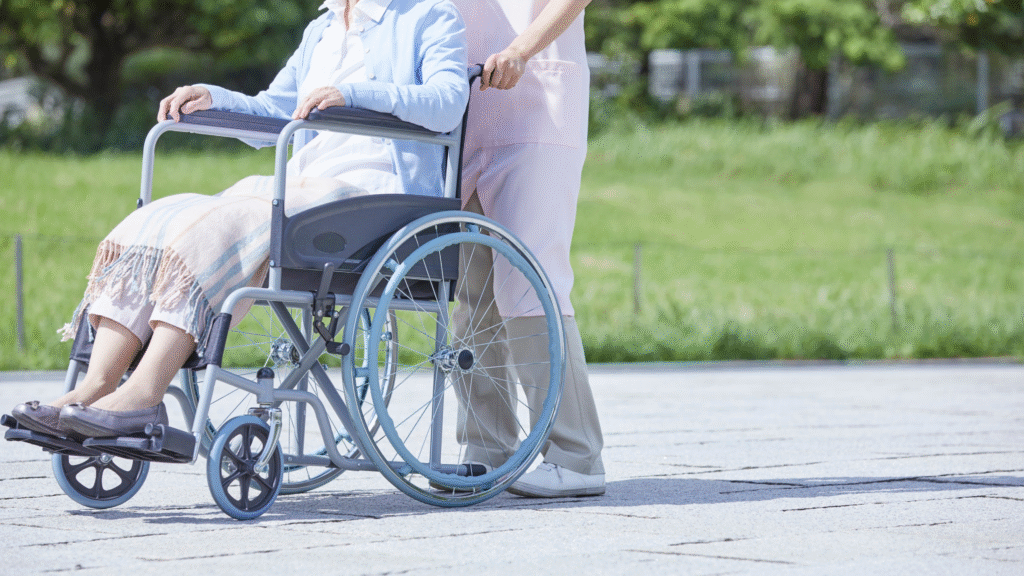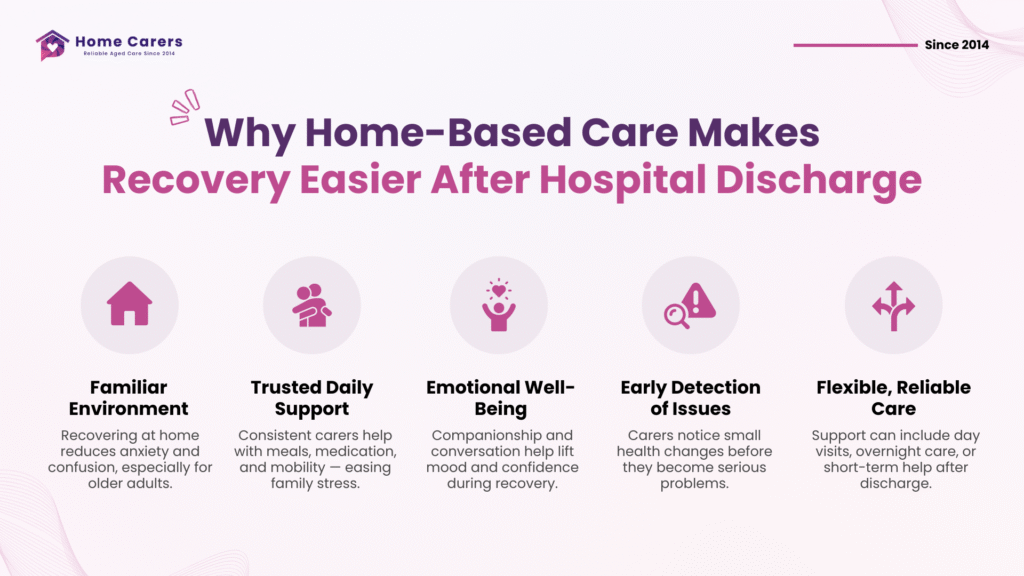Leaving the hospital can feel like a relief — but for many older people, it also brings confusion, anxiety, and physical exhaustion. Hospitals are structured, monitored environments, and once the constant support of nurses and doctors fades, families often wonder: “What now?”
That’s where home-based care makes a meaningful difference. For families in New Zealand, especially in Christchurch and Tauranga, arranging in-home support after hospital discharge can ease the emotional, physical, and logistical stress of recovery — for both the elder and their loved ones.
Why the Post-Discharge Period Is So Crucial

The days and weeks following a hospital stay are when most complications arise — falls, medication errors, infections, or simple fatigue that delays healing. Research from the Health Quality & Safety Commission NZ shows that older adults are more likely to be readmitted within 30 days if they don’t have adequate support at home.
While hospitals provide discharge summaries and sometimes referrals, it’s often up to families to fill in the gaps: managing medications, preparing meals, or ensuring Mum or Dad doesn’t overexert themselves.
That pressure can quickly become overwhelming — particularly when adult children are balancing work, travel, or living out of town.
The Comfort of the Familiar
Returning home isn’t just about physical surroundings. It’s about returning to familiarity — the favourite armchair, the family photos, the sense of independence that hospital walls can’t offer.
Home-based care after hospital discharge allows recovery to happen in this comforting space. A trained carer can help set up a safe routine: managing mobility, ensuring hydration, keeping track of medications, and supporting emotional well-being.
In many cases, the simple act of waking up in one’s own bed reduces confusion and restlessness — especially for those with early-stage dementia or cognitive changes.
Reduced Anxiety for Families
It’s natural for families to worry — especially when they can’t be there 24/7. Home-based care provides reassurance that someone trustworthy is checking in, helping with meals, tidying the home, and observing any changes in health.
Daily updates, offered by reliable care agencies like Home Carers, give families peace of mind. If a client seems weaker or forgets to take medication, the carer can raise it quickly, preventing complications before they become emergencies.
This shared responsibility helps families rest easier, knowing Mum or Dad is supported — even when they can’t be there in person.
Emotional Recovery Matters Too

After discharge, physical healing often gets the most attention — but emotional recovery can be just as important. Many older adults experience post-hospital anxiety or mild depression as they adjust to reduced independence.
A consistent, compassionate carer provides not only practical help but also companionship and encouragement. Simple moments like sharing a cuppa, chatting during a short walk, or listening to their concerns can make recovery more positive and less lonely.
“She was so patient and kind. Just having someone there made Dad feel less anxious and that helped him heal faster.”
— Family feedback shared with Home Carers
The Benefits of Consistent Support
Continuity is key. Unlike rotating hospital staff, home-based carers offer a familiar face each day. This stability builds trust and allows carers to notice subtle changes in mood, appetite, or mobility — small signs that might signal a need for medical attention.
Support can be adjusted as recovery progresses — starting with overnight or daily visits, then tapering to light assistance once the elder is stronger. Flexibility ensures that care meets real needs rather than rigid schedules.

When to Consider Home-Based Care
Families should consider home-based support if:
- The elder is returning home after surgery, a fall, or illness.
- They need assistance with personal care, meals, or medication.
- There’s concern about mobility, memory, or isolation.
- Family members are unable to provide full-time care.
Even short-term support (such as two weeks of daily check-ins) can make the transition safer and less stressful.


Ready for a Calm, Confident Recovery at Home?
Recovering at home can be a beautiful chapter of healing — when the right support is in place. Home-based care eases stress, prevents readmissions, and restores a sense of calm for everyone involved.
For families in Christchurch, Tauranga, and across New Zealand, Home Carers provides compassionate, flexible post-discharge support to help loved ones recover safely and comfortably.


